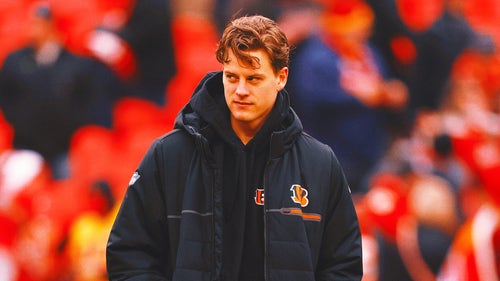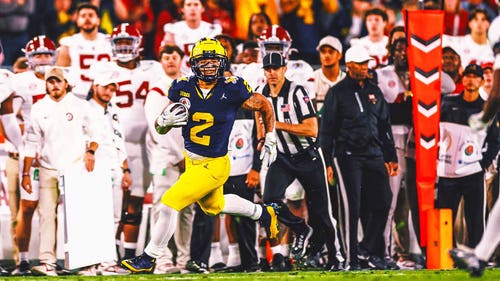
'High School Football Is a Force for Good'

By Jason Whitlock

Not every football story worth telling has a happy ending. Football isn’t The Blind Side, a movie that captured the love shared between a wealthy white Southern family and a poor black high school kid with NFL size and athleticism.
The Michael Oher-Leigh Anne Tuohy football love story is an outlier.
Football most often resembles the two-year love affair shared between Larry Willen and Chris Hamilton. (Chris Hamilton is not his real name.) Hamilton was a 5'11", 180-pound defensive end on my 1984 Warren Central (Ind.) High football team. Hamilton and I were co-captains of an undefeated squad that won the Indiana big school state championship and finished No. 9 in the USA Today national poll. Jeff George, the NFL’s No. 1 pick in 1990, was our quarterback.
When Peter King, editor of The MMQB, asked me to write a column about the significance of high school football, coach Willen and Chris Hamilton immediately entered my mind.
In 1984, Larry Willen was 48 years old, a husband, father of two and earning around $25,000 a year teaching and coaching football at my working-class high school. He was our defensive coordinator. He volunteered as a faculty adviser for our school’s Fellowship of Christian Athletes.
I met Chris Hamilton in 1981. As part of Indianapolis’ court-ordered racial desegregation program, Hamilton visited my junior high in anticipation of being transferred to the Warren Township school district. We had a lot in common. We loved football. And Hamilton lived in the housing projects a few blocks from my old neighborhood and where I spent my childhood summers staying with my closest relatives.
Hundreds of kids visited Stonybrook Junior High in 1981. I met most of them. Hamilton left the deepest impression. He told me that transferring to a new school system offered him a chance to change his life direction. He admitted that he rarely attended class at his old school and that he was on a path toward major trouble.
Life is hard. The challenges we present our children must be equally hard or we’re setting them up for failure.
I’m not sure if Chris Hamilton could read when he enrolled in school as a ninth grader. He could when he graduated four years later. To help him catch up academically, coach Willen enrolled Hamilton in night school. Coach Willen drove Hamilton home from school most nights, a 25-minute ride of small talk that might include some fast food and always ended just short of the front door.
“He’d always have me drop him off at the entrance of the apartment complex,” Willen recalled Saturday night. “I guess he didn’t want me to see how he lived. I think he had some family problems.”
By his junior year, Hamilton was a key starter on our defense. When Chris and I were voted captains by our teammates in 1984, a school that never had a single black football captain suddenly had two. I was the vocal leader. Hamilton was our heart, a symbol of perseverance and the hope of desegregation.
HIGH SCHOOL FOOTBALL WEEK AT THE MMQB: Tim Rohan in Texas, where football is on the front line of the immigration debate | Emily Kaplan in Chicago, where a storied program struggles on amid the city’s epidemic of gun violence
With a tiny bit of assistance from Jeff George, we led Warren Central High to its first state championship and national ranking. The school is a perennial powerhouse now, featuring a lot of kids from tough backgrounds similar to Hamilton’s.
Coach Willen, now 80, is still there. He’s the equipment manager.
“Even at my age, I can still relate to these kids,” he said. “You gotta build a relationship with them. You can’t just yell and scream. They have to know you’re with them.”
It started three decades ago with Willens’s relationship with Chris Hamilton.
“I remember getting him a watch for graduation,” Willen said. “And then we sort of lost touch.”
Hamilton went off to play football at a junior college in Illinois. He lasted a year or two. Willen turned his attention to the next Chris Hamilton at Warren Central. That’s the cycle. Willen wasn’t some rich booster looking to funnel prospects to his favorite school. Willen was a typical high school assistant football coach. He taught school because he loved helping kids. He coached football because he loved helping kids. Willen’s life mission was to help kids get through high school. Helping the poor fit the philosophy he heard preached at Franklin Road Baptist Church every Sunday.
Hamilton did not go on to a pro career. He didn’t become a popular sports writer. In fact, his demons caught up with him. His life has been rough and filled with heartache. Football was not his savior. It was a tool that inspired him to finish high school and enroll in college.
That’s good enough.
I could’ve told a thousand different football stories, many with much happier endings. But Chris Hamilton’s strikes me as the most authentic. Football isn’t perfect. It’s flawed, like most everything else that is manmade.
High school football is a force of good. It’s a unique game that can be played by fat kids, skinny kids, tall kids, short kids, fast kids, slow kids, smart kids and dumb kids. Unlike most sports, there’s a position and role for every kind of kid. The physicality of football provides an outlet for young men to work out their aggression. Participation in football is an important rite of passage and male-bonding experience. For men of faith— from Larry Willen to Tony Dungy—football is a ministry, an avenue to teach biblical life lessons through competition.
Football builds men. The absence of black fathers in poor urban areas accentuates football’s importance to black communities.
It’s easy for people removed from the game, the journalists who solely focus on football’s dangers and flaws, to not fully grasp the game’s positive impact. I get it. Concussions cause brain damage.
Boys who are not regularly constructively challenged physically, emotionally and mentally by men do damage to our society. Life is hard. The challenges we present our children must be equally hard or we’re setting them up for failure.
Let’s work to perfect football, not abandon it.
Jason Whitlock is a Fox Sports columnist and on-air personality. He co-hosts Speak for Yourself with Colin Cowherd, weekdays on FS1. Follow him on Twitter @WhitlockJason.
Questions or comments? Email us at talkback@themmqb.com.
This article originally appeared on
















































































































































